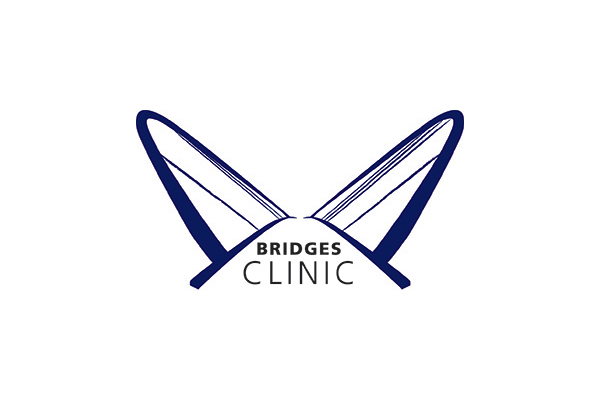Once you have been diagnosed with endometriosis there are options available to you.
Your consultant will be able to discuss all the possible treatments and be able to advise on the outcomes you can expect from each option. Different factors will all play a part in the best treatment option and will include your age, the severity of your symptoms and if you are hoping to become pregnant or not.
The main treatments for endometriosis include:
Localised Heat
A common symptom of endometriosis is pelvic pain. Pain relief options vary dependent on how severe the pain is. Sometime a simple hot water bottle or hot bath may help to reduce pain. Some women also find heated wheat bags to be effective; being comfortable and reducing stress will also help.
Medication
For more acute pain, you may be offered medication to help relieve your pain, ranging from over-the-counter remedies (e.g. paracetamol / ibuprofen or codeine based painkillers) to prescribed medications. In more severe situations, you may be referred to a specialist pain management team.
Physiotherapy for Women
Specialist Women’s Physiotherapists can develop a programme of exercise and relaxation techniques designed to help strengthen pelvic floor muscles, reduce pain, and manage stress and anxiety.
Hormone Treatments
As endometriosis responds and grows when exposed to the female hormone oestrogen, a number of hormone treatments attempt to block or reduce the production of oestrogen in the body. These treatments reduce or stop ovulation (the release of an egg from the ovary) and therefore shrink the endometriosis by decreasing hormonal stimulation. Some hormone treatments that may be offered are contraceptive and will also stop you becoming pregnant:
- the combined oral contraceptive (COC) pill or patch given continuously without the normal pill- free break; this usually stops ovulation and temporarily either stops your periods or makes your periods lighter and less painful
- an intrauterine system (IUS/Mirena), which helps to reduce the pain and makes periods lighter; some women using an IUS get no periods at all
- progestogens in the form of injection, the mini pill or the contraceptive implant.
Other hormonal treatments are available but are not contraceptives. Therefore, if you do not want to become pregnant, you will need to use a contraceptive as well. Non-contraceptive hormone treatments include:
- progestogens in the form of tablets
- GnRHa (gonadotrophin-releasing hormone agonists) which are given as injections, implants or a nasal spray. They are very effective but can cause menopausal symptoms such as hot flushes and are also known to reduce bone density. To help reduce these side-effects and bone loss, you may be offered ‘add-back’ therapy in the form of hormone replacement therapy (HRT). One of the most commonly used GnRH analogues used to treat endometriosis is Goserelin (Zoladex).
Fertility treatment
Becoming pregnant can be a problem for some women with endometriosis. Hormonal treatment is not always advisable when you are trying to conceive and surgical treatment may be more appropriate. Your consultant will provide you with information about your options and arrange a referral to a fertility specialist if appropriate.
Surgery
Surgery can treat or remove areas of endometriosis. The surgery recommended will depend on where and how extensive the endometriosis is. Success rates vary and you may need further surgery. Possible operations include:
Laparoscopy – when small to medium patches of endometriosis are destroyed or removed
Laparoscopic Excision – for more severe cases, this may involve removing large endometriotic cysts from your ovaries
Hysterectomy – or removal of your ovaries with or without performing a hysterectomy (removing the womb). You will not be able to have children after a hysterectomy. Longer term pain relief is more likely if your ovaries are removed. However, because of the health risks associated with removal of ovaries, your Consultant will discuss this and the possible need for hormone replacement therapy (HRT) with you
Sometimes other surgeons, such as bowel specialists, will be involved in your surgery. As a specialist endometriosis centre we have a team which includes a consultant gynaecologist, consultant bowel surgeon, consultant radiologist and consultant specialists in pain management to ensure a holistic care plan is available.
Mr Mahran – MBBCh, MSc, MRCOG
Consultant obstetrician and gynaecologist – Clinical Lead at Bedford Hospital
Mr Mahran is a specialist in endometriosis and the lead for the Bridges Endometriosis Centre as accredited by the British Society for Gynaecological Endoscopy.
He is highly accomplished in the management and treatment of complex gynaecological cancers, advanced laparoscopic surgery, hysteroscopy and colposcopy, including medical and surgical management of menstrual disorders and pelvic pain.
He has over 20 years’ experience and completed his advanced laparoscopic (keyhole) surgery training in Norfolk and Norwich University Hospitals and has since introduced the keyhole hysterectomy and operative hysterectomy techniques to Bedford Hospital – where he is the clinical lead.
He is keen on professional development and medical education and frequently organises lectures, small groups and workshops for fellow peers / professionals; he is also a published author of numerous articles in medical journals.
